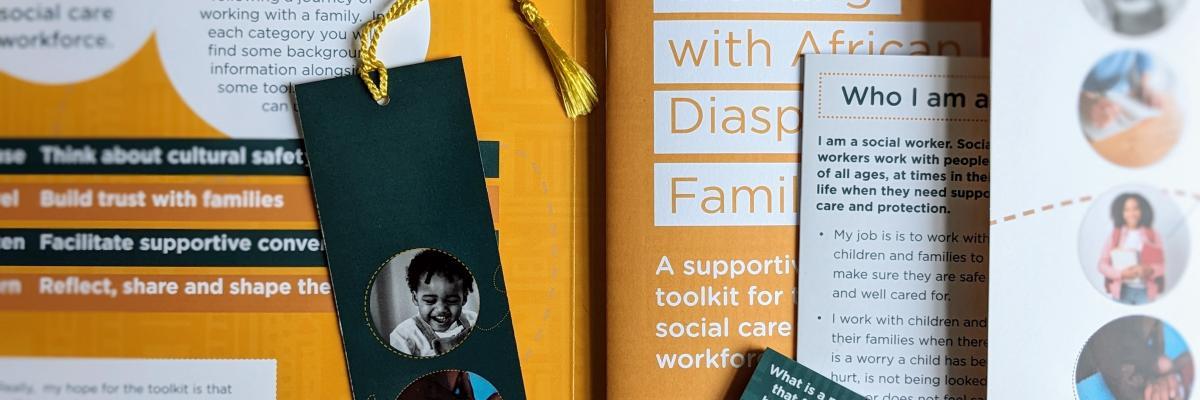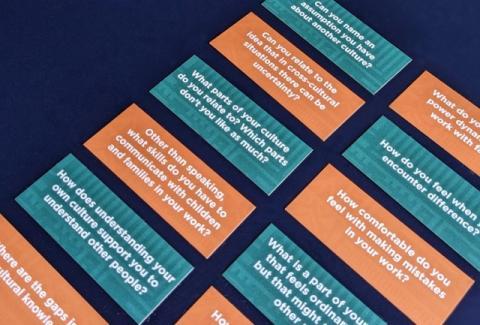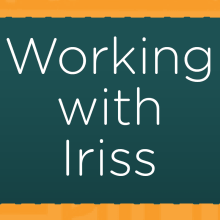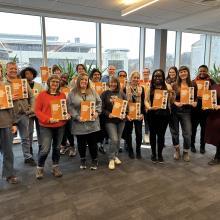Throughout our work with Passion4Fusion, we’ve been incredibly motivated by the optimism and drive of our partners. They are knowledgeable, dedicated and passionate about supporting the children and families they work with.
Where you find P4F, you find enthusiasm.
This project has aimed to tackle a challenging area: How do we create positive relationships between social work and families from the African diaspora? To create the toolkit, this project has demanded we talk about race and racism, ethnicity and culture; and how that impacts families, as well as how it impacts social workers as professionals. Talking about this can be uncomfortable. It can be difficult and challenging, and there is often fear around saying the wrong thing and offending someone. Fear of not being understood, or judged, or having a personal experience not taken seriously.
In light of this, we have reflected on the conversations we’ve had between us - Iriss and P4F - as partners on this project; and the conversations we’ve tried to promote at the events and co-production sessions that we’ve hosted as part of this work. Throughout this project, we’ve noticed that despite challenging conversations, we have been able to create spaces to talk where people feel able to share their experiences. And we wanted to think about how we’ve managed this.
Some of this has been intentional. We’ve started meetings, workshops and events with an acknowledgement of the challenge that it can be to talk about our knowledge and experiences of racism, race and culture. This has supported an open atmosphere, and reminded everyone that putting some of the challenges front and centre, facilitates conversation rather than shuts it down.
We’ve made a conscious effort to turn discomfort into curiosity. For example, we have reflected that when you’re someone who is part of the dominant culture, you can forget that you belong to a culture at all. The expectations, customs, rules and norms that guide your values and in turn, your behaviours, are implicit to you. So obvious, that you stop noticing them.
For people from the African diaspora coming to, or living in Scotland, their culture is often not the dominant one. We’ve gotten curious about how understanding ones own culture - whatever, and wherever that may be - can support understanding of other people. Tools for self-reflection, and reflection with others are included in our toolkit. We invite participants to think about how a lack of knowledge, can in fact present an opportunity to ask questions.
Perhaps most importantly to creating an open atmosphere, is that P4F have come to this project with openness and solution based thinking. They have purposefully avoided a blame culture, and instead have focused on where the toolkit can build bridges. This has grounded the project in hope. Hope that families and social workers can work better together; hope that social work can find time and space for these important conversations; and ultimately hope that outcomes for black and African diaspora families and children can improve. With this approach forming the foundations of the project, it’s been possible to listen and understand and build a toolkit to equip social workers with the knowledge and understanding they need to support families.
Our toolkit will be published online in the upcoming weeks, when you can check out the resources we have built to support conversations that foster trust and understanding. We invite you to use this in your work with African diaspora families, and beyond. Let us know how you build the environment where tricky conversations become possible.
If you’ve been working in an area like this, or you have an idea you want to bring to life - we want to hear from you. Find out more about working with us here and for more information about this project contact hannah.martin@iriss.org.uk





